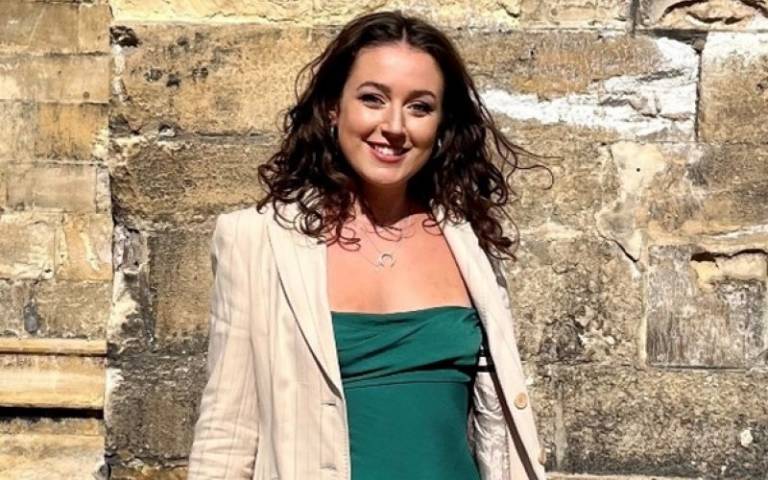How to study successfully at university
4 November 2022
Esther Ambrose-Dempster, UCL Chemistry PhD Student, shares her tips for studying successfully at university.

Starting a degree, whether undergraduate or postgraduate, there are many things to think about. As well as getting to grips with lifestyle changes, you’ll also need to explore and critically analyse new subjects.
This’ll be a step up from your previous studies, and initially it can seem a bit much.
There will be a lot of reading material at your disposal, and extra reading on top of that. My most important tip is to not get overwhelmed by the quantity of the content. Yes there’s a lot to engage with, but it’s up to you how you approach it. But like everything, practice makes perfect, and the more you study, the better you get at it. Check out Reading Lists Online to access essential reading wherever you are.
At the beginning you’ll be a bit out of practice but that’s okay, consistency is the key to success. There’s also lots of help available from the library through online chat.
First things
Do a self-guided library tour, it will make it much easier when you need to find books and other resources, want to find somewhere to study, or need to ask for help.
Read a book on critical analysis. University teaches you to develop your critical thinking ability, something that before undergrad you aren’t really exposed to. One particularly useful book is Critical Thinking Skills by Stella Cottrell, available through UCL Explore, the library’s online discovery tool.
Learn how to reference properly early on. Referencing incorrectly is a silly way to lose marks. If you need help, the library has a quick useful guide on referencing. Use a reference manager like Mendeley or EndNote, but know what style you need to use and how to do it so that you can spot any errors. The library also offers guidance and workshops on using these tools.
Studying
‘Obvious questions’ are the best questions. They’re often not actually that obvious. And if no one has asked, maybe no one knows the answer. There’s also not a thing as too many questions. It’s better to be thorough than misinterpret something. Have the confidence to ask, or email the lecturer or PGTA involved.
UCL’s libraries are a great studying environment. You can study in any of them, not just your subject one. Each of the libraries offer a different vibe with their various locations, different architecture and history and separation by subject. You can check opening times and how busy they are before you visit. The separation between your home and studying day is good for both your mental and physical health.
If you need a resource which isn’t available yet, you can order a copy through inter library loans or request the library get access to it. You might not be the only one wanting this resource as well, so they will always endeavour to provide it.
Start your readings early
Early enough that if you find one particularly interesting or challenging, you can spend time looking into; or so you can delve into the extra readings. Annotate as you go through, with links you make between lecture material, other resources, whatever things you come up with are useful things to take to seminars. Then in seminars note down other things discussed that you didn’t think of straight away. A few weeks later when you’ve been through 20 readings, you won’t have a clue what that week’s comments were. It’ll make original viewpoints in essay writing, critical analysis and exam prep much easier. You can use a tool like Onenote to make sure your notes are kept in one place.
There’s always more reading you can do, always. You don’t have to do it. You don’t even have to do any of it, but it will make the subject easier and you will get far more out of it studies if you do. The library’s Subject Guides are a great place to start to explore your subject in more depth.
Finally
Finally, set reminders of when to renew or return your books. Other students might need the books. Check your UCL email regularly. This is where the library will send reminder emails.
Getting to grips with studying at university level is a big process, if you need any guidance, there are always people happy to help. The UCL Library Getting Started Guide will help. You can also always speak to friendly library staff through online chat.
 Close
Close

